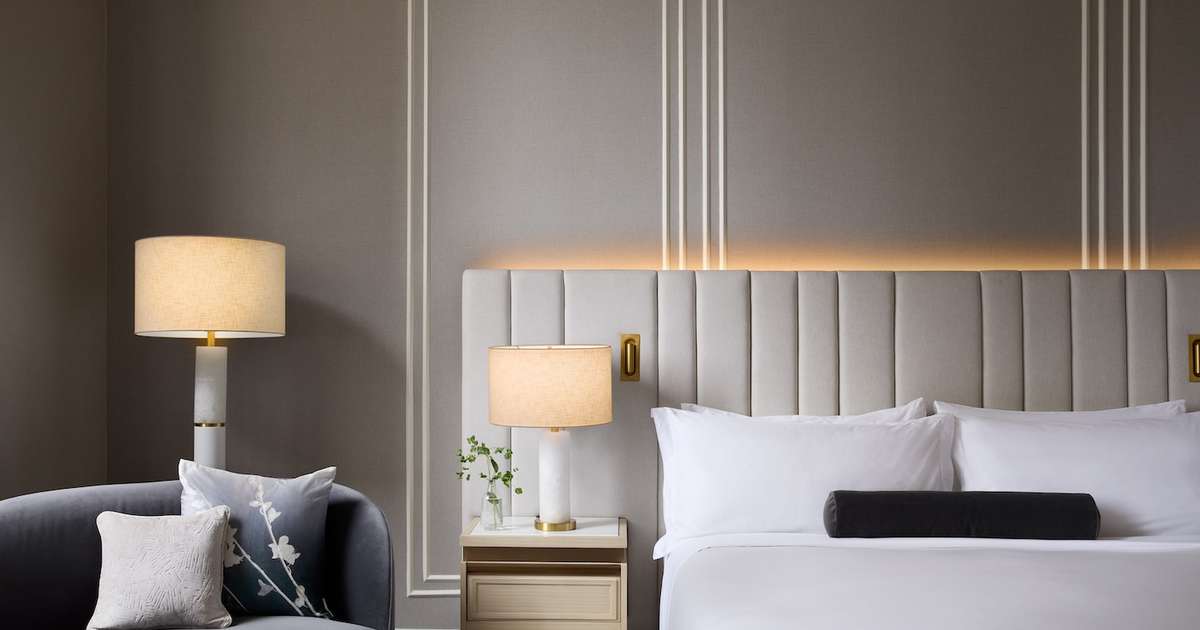
In his groundbreaking book, The Third Wave, Alvin Toffler painted a vivid portrait of a world in metamorphosis—a civilization shedding the rigidity of industrialism to embrace the fluid, fast-paced rhythm of the Information Age. He envisioned a society no longer defined by smokestacks and assembly lines, but by hyper-communication, data streams, decentralized power, and the rise of the prosumer—individuals who both produce and consume.
In his view, the third wave was not just a technological shift; it was a cultural and psychological upheaval, where institutions, organizations, relationships, and identities would be re-imagined. Toffler foresaw a world of customization over standardization, of networks over hierarchies, and of knowledge as the new currency. In many ways, his wave still crashes forward today, its crest is now topped with artificial intelligence, automation, and the digital ecosystems he so precisely anticipated.
Some futurists might argue that AI, quantum computing and synthetic biology are ushering in a Fourth Wave – a trans-human or even a post-human era. But in Toffler’s way of thinking, he would probably see these as the maturing phase of the Third Wave, where data/information is not just a tool, but is a self-evolving force where AI and learning models can learn, adapt, and improve their performance without external human directions. I often think about how researchers at DeepMind helped Humanoid soccer-playing robots develop skills, agility and techniques to score. Can your hotel soon be employing robots to make beds and clean bathrooms? Greet guests at the front desk? Or be a 24-hour lifeguard at your pool?
If Alvin Toffler were to envision a hotel for his maturing phase of the Third Wave, he would most likely see it not just as a place to sleep, attend a meeting, or enjoy breakfast. Instead, he would probably see it as an adaptive, intelligent ecosystem with environments that can respond and adjust to the evolving needs of post-industrial guests. He would undoubtedly see the hotel as an actual thinking space – a place embedded with ambient intelligence that could enable walls to sense a guest’s mood, lighting that would adapt to circadian rhythms, and rooms that would reconfigure themselves based on the guest’s purpose – work, wellness, or play.
In this mature phase, Toffler’s vision would see biology and technology converge, enabling hotels to offer bio-personalized environments where filtered and ionized air matches the guest’s genome, where the guest’s nutrition and sleep cycles are optimized by his/he wearable data, or where elite travelers are offered on-demand gene therapy or neuro-enhancement pods – not just a luscious fruit basket. Toffler would likely see these as the ultimate customization where the hotel knows the guests bodies and needs better than they do.
In other words, Toffler would envision tomorrow’s hotel as the co-creator of the guest’s experience, not just the “place where it happens” (to borrow from the musical, Hamilton). He might think of it as a place for reflection, creation, and connection – i.e. a place for “meaning-making.” I remember hearing some futurist say once that hotels can no longer think of a guest as just a person, but as a presence that is distributed, augmented, and evolving.
While such a hotel may seem far-fetched or way too far in the future to think about during your staff’s next planning meeting, remember The Knowledge Doubling Curve. Popularized by Buckminster Fuller, a 20th-Century inventor and futurist, the curve is a concept that illustrates how the accumulation of human knowledge accelerates over time. Fuller found that, until 1900, human knowledge doubled approximately every one hundred years. By the end of World War II (1945), it doubled every 25 years.
In the 1980s, IBM estimated that knowledge was doubling every 12-13 months, and as of 2025, estimates suggest that human knowledge is doubling approximately every 12-24 hours. This means that, when you wake up tomorrow morning, the world’s knowledge base is twice as big as it was this morning. This unprecedented speed is being driven, of course, by massive data collection, advanced analytics and the billions of interconnected devices that are constantly producing data all over the world. The ease of sharing and building upon information across boarders accelerates discovery, diffusion, and implementation of innovation worldwide. Already, hotel guests demand seamless high-speed connectivity and ample charging options to support their digital lifestyles.
So let’s take a hypothetical look at what a guest’s experience might look like staying at one of Toffler’s maturing Third Wave hotels. Let’s call our hypothetical guest Maya Chen. Maya is a single, 38-year-old Millennial who works in Austin, TX as a UX (User Experience) designer. She travels every one to two weeks, and prefers modular spaces, wellness-integrated environments, and community driven experiences. She does not like generic hotels, rigid itineraries, or high-carbon impact travel. Maya could be described as a Transient Creative. She prefers a Vegan diet, quiet rooms with natural light, enjoys yoga and meditation, loves modern art and jazz music and is sensitive to synthetic scents.
Maya is going on an overnight business trip to meet colleagues for a creative design session. She chooses to stay in a Toffler Hotel because it is, in essence, a living system that adapts to her rhythms, values her input and connects her with a global tribe of line-minded guests. And the hotel does not view her as a guest; it thinks of her as a co-creator in a space that blurs the line among work, leisure/rest and wonder.
Maya stepped out of the maglev pod and into the lobby of her favorite Toffler Hotel. There was no front desk – just a soft chime as her biometric signature synchronized with the hotel’s AI. A gentle voice greeted her:
“Welcome back, Maya. Your suite has been configured for creative flow and circadian alignment. Would you like to review your personalized itinerary?”
She smiled and replied, “You know me well; let’s go with the flow.”
As she entered her suite, the walls shimmered, shifting from a calming forest scene to a minimalist workspace. Her desk emerged from the floor, already displaying her current design project on a holographic canvas. The lighting automatically adjusted to match her energy levels, tracked by her wearables.
After a few hours of deep work, Maya activated her ‘rewild mode,” transferring the room into a biophilic retreat of moss walls, ambient forests sounds, and a gentle aroma of cedar. Following her meditation time, she showered, dressed and joined her cadre of associates for a communal dinner in the Sky Garden. There, they helped the AI-Chef prepare healthy foods using locally grown ingredients, shared stories, ideas, and even collaborated on a spontaneous AR (augmented reality) art piece.
At the end of the evening, Maya retired to her room’s ‘Sensory Cocoon,” adjusting it into a softly lit space with a gravity-adjusting chair, and AI-curated soundscapes. She was ready for a good night’s rest, so she opted into the hotel’s ‘dream weave program that uses gentle neurostimulation and dream journaling prompts. Her dreams are softly recorded to a visual diary that she can review and save in the morning.
Maya awakes rejuvenated and with creative energy. She opts for the sunrise meditation session on the rooftop with neuro-responsive music and kinetic light displays, followed by a fluid movement session combining tai, chi, dance, and breathwork, all synchronized to her biorhythms. Completely energized and focused, she was ready to join her colleagues in the ‘Prosumer Lab,’ the hotel’s co-creative workshop. The team was charged with designing the prototype for a wearable that can translate emotional states into a visual art piece.
At the conclusion of their successful day, they created a digital time capsule of their work, via the hotel’s ‘Memory Capsule’ program. The team then celebrated their accomplishments at the hotel’s famous dinner, ‘Flavors of the Anthropocene’ – an evening celebrating at the hotel’s ‘culinary exploration of sustainable ingredients.’
The next morning, Maya gets back into her maglev and heads home.
Within 24 hours of her return, Maya receives a personalized message from her AI concierge: ‘Welcome home Maya, Would you like to continue working on your design prototype from the ‘Prosumer Lab?’ We will be happy to set up a virtual co-creation with your team, facilitated by the hotel’s digital platform.’ She also received the personalized report of her impact on the environment with her carbon offset statistics showing that she helped offset 0.42 tons of CO2, supported three local microfarms, and earned 180 Toffler Points. (And if we know anything about the younger generations, it is all about the points!)
In today’s world, the idea of an AI-run Toffler hotel still feels like something out of a sci-fi movie. We still cannot picture walking into a sleek, glass-paneled lobby where there is no human staff—only humanoid robots greeting us with perfect manners. We cannot yet envision having facial recognition systems checking us in or AI concierges customizing our stay based on our mood and preferences. We cannot understand how our room can adjusts lighting, temperature, and even scent based on our biometric data. And we cannot visualize a robotic butler delivering our room service or AI interpreting our dreams to recommend activities for the next day.
To many, this scenario seems surreal. We are still used to human interaction in hospitality—smiles at the front desk, small talk with the concierge, and the personal touch that makes a stay memorable. The idea that algorithms could replace that warmth feels distant and even unsettling. As Barbara Streisand sang, “People…people who need people are the luckiest people in the world.” Yet, with rapid advances in robotics, machine learning, and smart environments, this future may not be as far off as it seems. What feels unreal today could be the norm tomorrow, reshaping not just how we travel, but how we define comfort, connection, and hospitality.
And who knows, you may even meet Maya Chan in the lobby.
Your REVPAR will thank you.
Reprinted from the Hotel Business Review with permission from www.HotelExecutive.com.
Bonnie J. Knutson
Michigan State
View source

